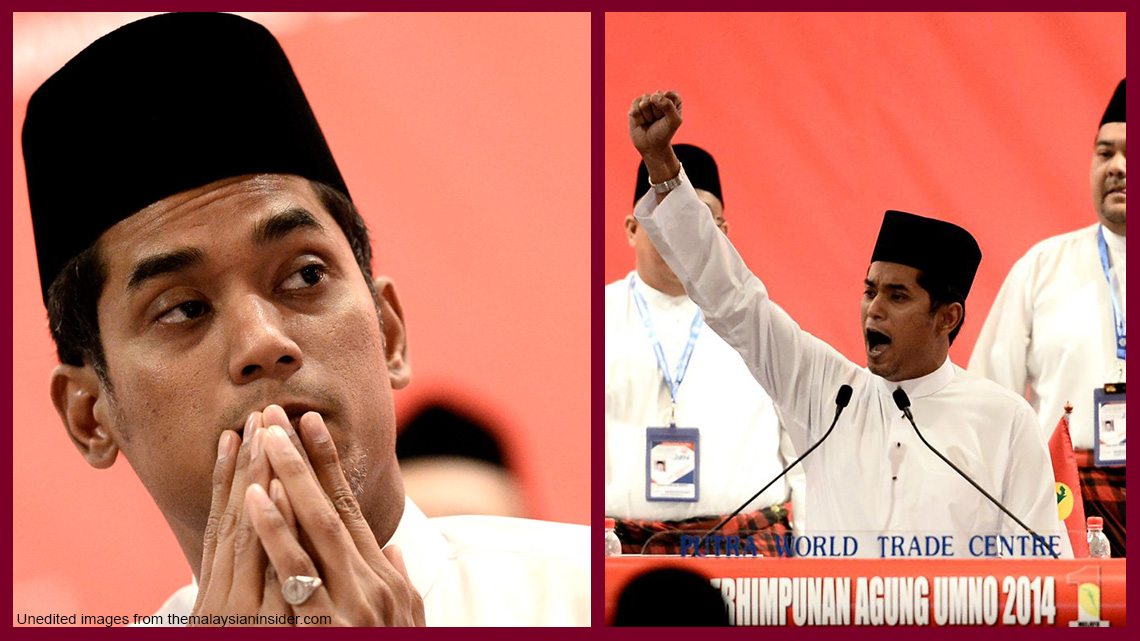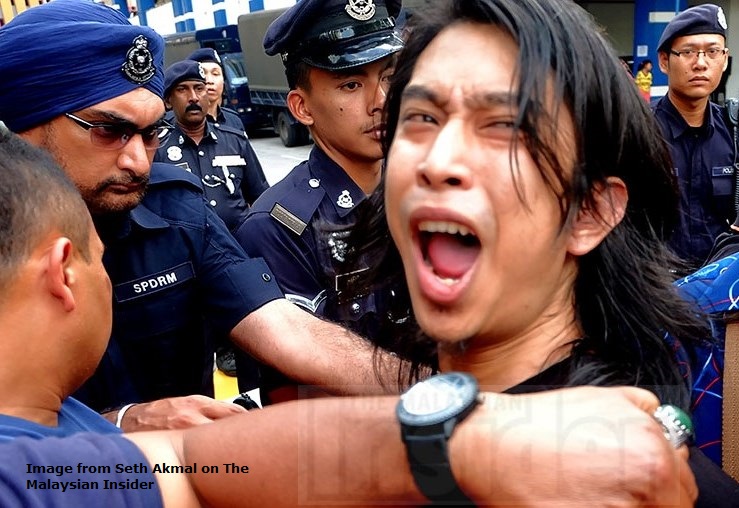Afraid of sedition? We ask what it’s like to get arrested.
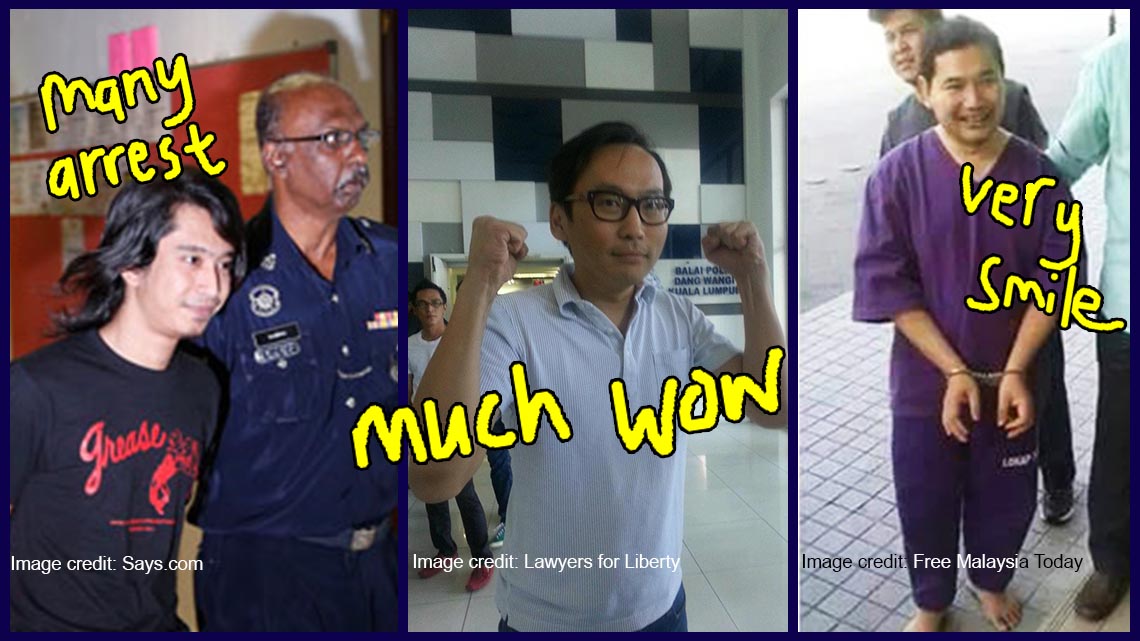
- 719Shares
- Facebook712
- LinkedIn1
- WhatsApp2
By this point, you may have seen the words “arrested for sedition” pop up so many times that it’s just become another word that you come across in the local news or CILISOS articles. Sure, it’s a worrying trend that’s been compared to Ops Lalang, and sure, people are being arrested under this act more regularly than Kanye West interrupts Grammy winners on stage; but that’s all we know about it. What we don’t know is what the experience for arrested for sedition is like.
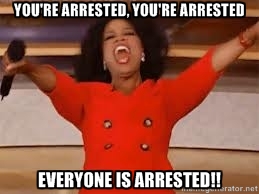

Many of ugaiz might have heard of Lawyers for Liberty (LFL) – a badass human rights NGO who aren’t shy about making critical statements about our laws. They’re qualified to do it too, since the group was founded by three lawyers passionate about law reform (examining and improving existing laws)… even taking up several “difficult” high-profile cases such as prisoners who died while under police detention.
Also, two of its three co-founders – Eric Paulsen and N. Surendran – were arrested for sedition. Their legal coordinator Michelle Yesudas was also recently arrested over a tweet she made, but we didn’t manage to catch her for the interview as she was attending Rafizi Ramli’s arrest on Friday. We asked Eric and Surendran some questions that we’ve always had about getting arrested – questions which we’re sure you might be asking as well.
(Note: These points are primarily based on Eric and Surendran’s experience. Not everyone will have the same treatment, and please don’t try to find out 😐 )
1. Is the arrest dramatic?
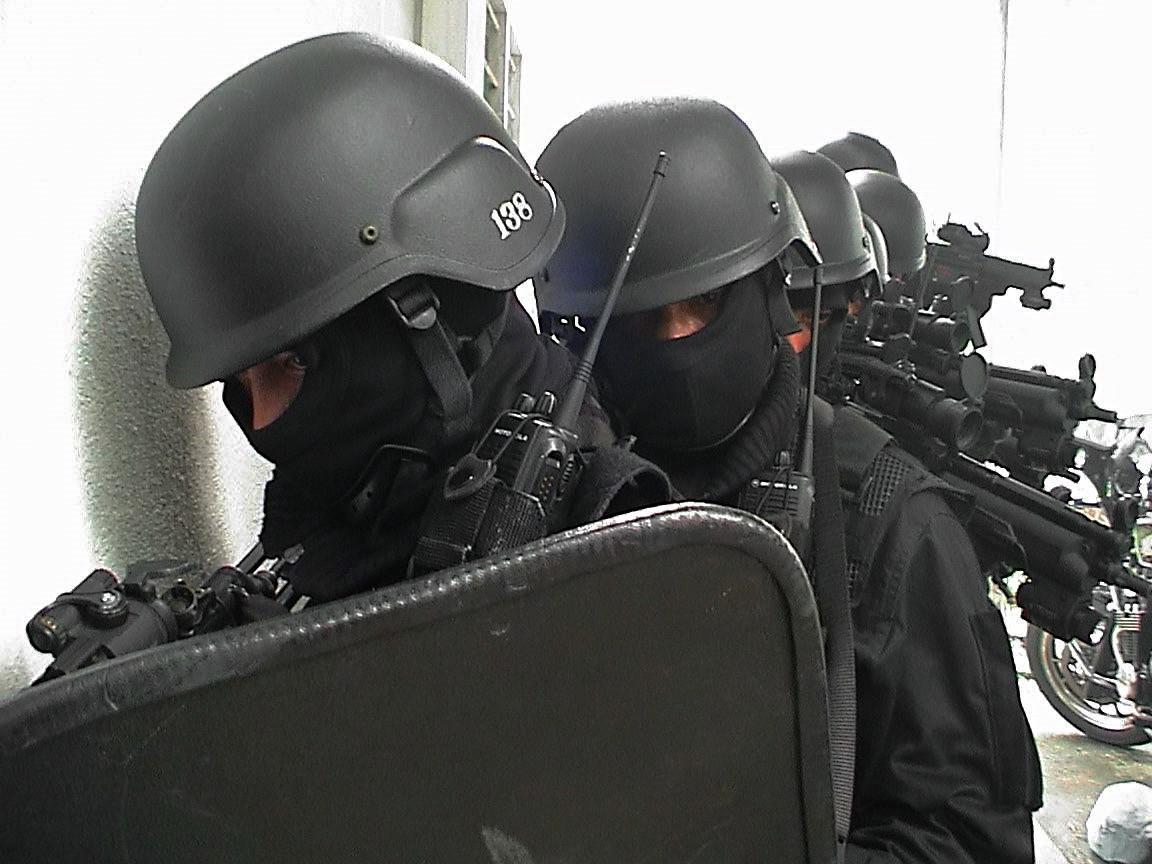
You can literally be scooped up anytime, anywhere. Eric recalled that his first arrest back in January for his tweet about JAKIM was “very weird,” as he was surrounded and arrested by almost 20 policemen after having dinner with some friends in Brickfields (How did they find him? 😯 ). This was despite the fact that he had been summoned (and agreed to show up) at the police station the next day anyway.
During his March 22nd arrest for his tweets on Hudud, he mentions that he posted a series of Tweets at about 10am, and was called by Latheefa (Koya, LFL co-founder) at 12pm to delete them as they were “getting the wrong kind of attention”. Unfortunately, it was too late as the cops came for him while he was at Dataran Merdeka for the Art for Grabs event (HOW DID THEY FIND HIM?? 😯 ).

SERIOUSLY HOW THE HECK DID THEY FIND HIM??! 😯
When we asked Eric if he had any idea how the cops found him in those two instances, he says he has no idea but thinks they may have found him at Art for Grabs based on his Twitter posts but is still in the dark about how they tracked him to Brickfields (for the first arrest).
But the police don’t come looking for you all the time though… sometimes you go looking for them. Surendran was called to surrender himself at the police station, as was Eric for the January arrest. Surendran also tells us that his arrest back in August 2014 was the first of the recent string of sedition arrests in the country.
It can also get a whole lot more dramatic, such as with activist Hishamuddin Rais, who was “kidnapped” by six plainclothes policemen after he got out of his taxi.
“One of them dragged him by the chest, covered Hisham’s mouth to stop him from shouting. They threw Hisham into another car and took him to Dang Wangi.” – PKR Communications director Fahmi Fadzil, as quoted in The Rakyat Post.
2. Do they rampas all your stuff?
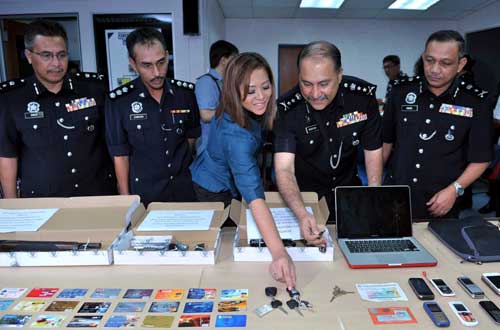
We asked Eric if he had any photos of him being arrested that we could use for this article. He says “Got!” and briefly looks at his phone before saying:
“Aiya, it’s in my other phone which is still with the police. This is a new phone. It’s my third phone this year.”
It really depends on the case and the investigation, but the police CAN rampas your stuff for investigation purposes and they WILL return it………………….eventually. Eric says that his laptop was confiscated during the first arrest in January, which still has not been returned. The cops also took him back to his house to search for other electronics, but during the second arrest they just asked him if he had any laptops at home and took his word for it when he said no.
Also, just to clarify, when we say “stuff,” we mean “items that may be used as evidence in the investigation” so for cases like Eric’s where the “crime” took place online (Twitter), the evidence would be in something that he would use to go online – meaning phone and computer. This really depends on the nature of the investigation, but you’ll be there to watch them do it as per police protocol.
When we asked if he knew when he was going to get his phones back, Eric just says:
“I’ve got a good mind to get a Nokia 3310 or something next time.”
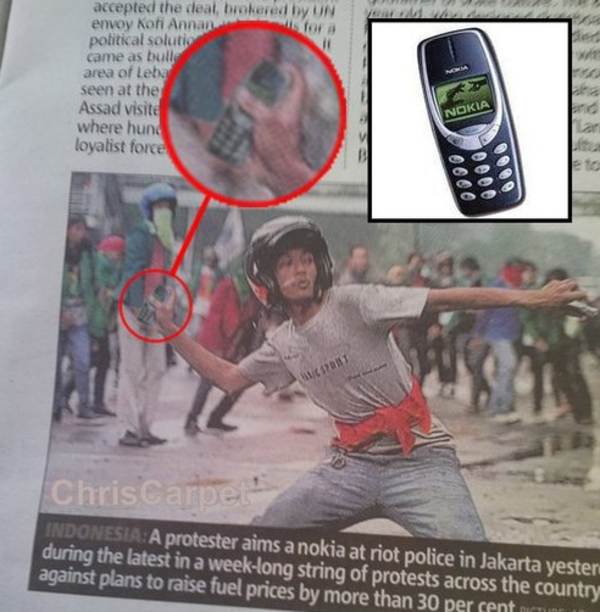
Speaking of phones….
3. Do I get my one phone call?
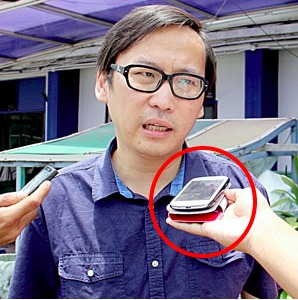
You’ve been watching too many movies, but yes, you CAN make phone calls since the cops are usually quite okay with it. In fact, Eric says that he had his phone with him “for the longest time” before they asked him to turn it in. However, this is again dependent on the type of investigation, as you may not get the same leniency if you were being investigated for murder or something.
Also, you might want to use that phone call to get a good QUALIFIED lawyer. LFL’s phone number is 03-79604537. Just sayin’.
4. How bad is it inside the lockup?
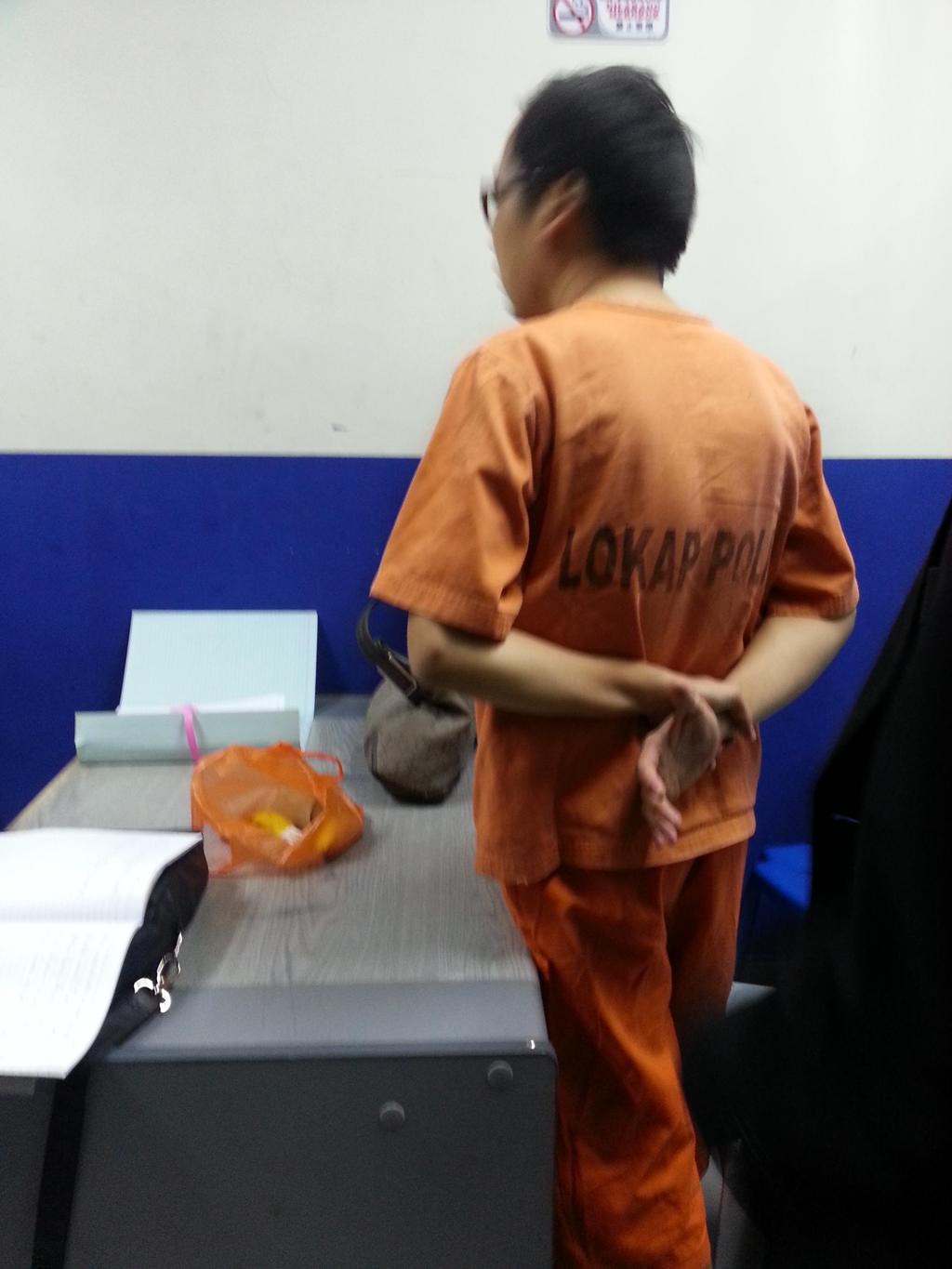
For the record, Eric was in the lockup for two nights in January and one night in March. He was put in a single (private) cell, and isolated from other detainees. Here’s what to expect:
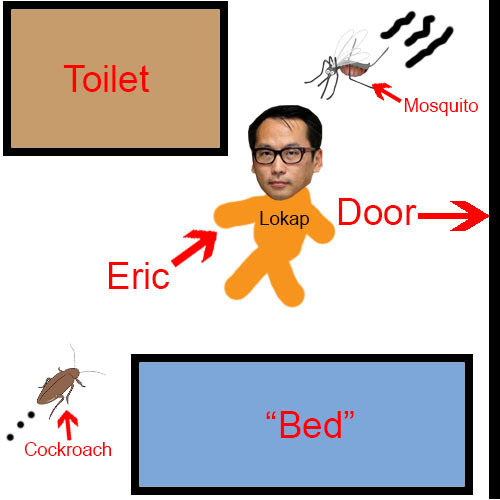
- Cell dimensions – 10 x 10 feet (estimated).
- “Bed” is a slightly elevated wooden platform.
- Toilet is a squatting type with no door, just a slightly elevated panel for privacy. Comes with pail and water.
- Small cockroaches and mosquitoes for company
Eric tells us that the conditions aren’t as bad as you might expect since the lockup is pretty new. When we asked him if there was any graffiti on the walls (and if he added to it) he said there wasn’t since detainees aren’t allowed to have any items on them. However he did say that people did manage to scratch stuff into the wooden “bed” (dunno what they used though).
When Eric said detainees aren’t allowed to have any items on them, he literally means ANY items except the lockup clothes. It’s not so much the boredom of having nothing to do, but the disorientation of not knowing whether it’s day or night since the lights are always on and there are no clocks or newspapers.
Also, if you’re in for a long stay, you get a toiletry kit. Like hotel!
How bad is the food?
Here are the features of a typical lockup meal, so you can judge for yourself:
Meal: Nasi bungkus (fish, plain rice, cucumber slices) and air sirap.
Presentation: Nasi bungkus wrapped in paper and air sirap in plastic bags, tied with rubber bands. No cups or utensils.
Food quality: Food is almost rotten, fish is deep-fried until unrecognizable, don’t know how long the cucumber has been there.
Eric pretty much says that they try to not eat the food given to them unless they really have to, and would rather wait for food to be brought in by visitors and lawyers.
5. Do the polis mistreat you?
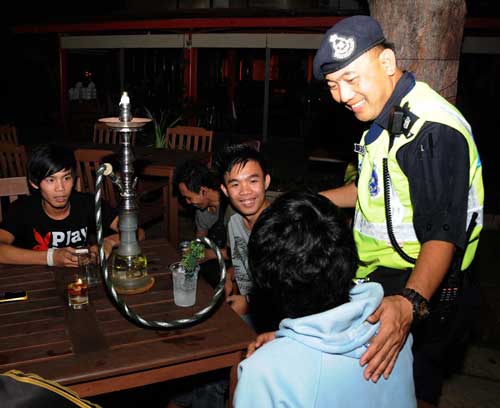
Eric noted that the police were “very nice, polite, and generally quite civil”. He says he has no personal grudge against them but was also quick in pointing out that he was referring to the rank-and-file guys who were just following orders – maintaining that his beef is with the ones issuing the orders as the arrests and detainments were completely unnecessary.
He tells us that during his second arrest, he was given a private cell which was sandwiched between two bigger cells full of people. He asked the officers if he could have the same cell he was previously in and they agreed. A few policemen were also quite understanding, with one abang polis jokingly asking him to “slow down” when he was in jail the second time. Some were also fans of Nurul Izzah, apparently (Nurul Izzah was also arrested this month for sedition).
6. How long can they keep you in jail?

This depends on how long it’ll take for the cops to take your statement, fingerprints (All 10 fingers according to Surendran) and mugshot.
Eric says that this will take about 2 hours at the fastest, but for sedition cases the cops can keep the person in lockup (a remand) for up to four days if the judge agrees. Otherwise, you’re released on “police bail“ and allowed to leave – as with Surendran and Michelle Yesudas, who were released after a few hours.
A police bail in this sense means that you just need to be contactable by the police when required. This is different from the “regular” bail where you need to pay money to the court when you get charged.
If you’re out on police bail, there are no restrictions on what you do, even traveling out of the country. Just don’t miss the court date la, k?
The important thing to note here is that getting arrested isn’t the same as getting charged. This means that while you might spend the night in the lockup, the cops may find no reason to take further action at the end of the investigation.
Also, if you do get charged with sedition, there may be a chance you won’t have to stand trial at all since all sedition hearings have been postponed thanks to UM Professor Azmi Sharom. His lawyers have challenged the validity of the whole Sedition Act since it was in effect BEFORE Malaysia became an independent country. If they win, the Sedition Act will be considered unconstitutional and all sedition charges against everyone will be dropped. But for now, those charged under this act will still have to go to court every two months or so to manage their cases.
TLDR: It’s not as bad as you think (Maybe that’s why they’re all smiling)
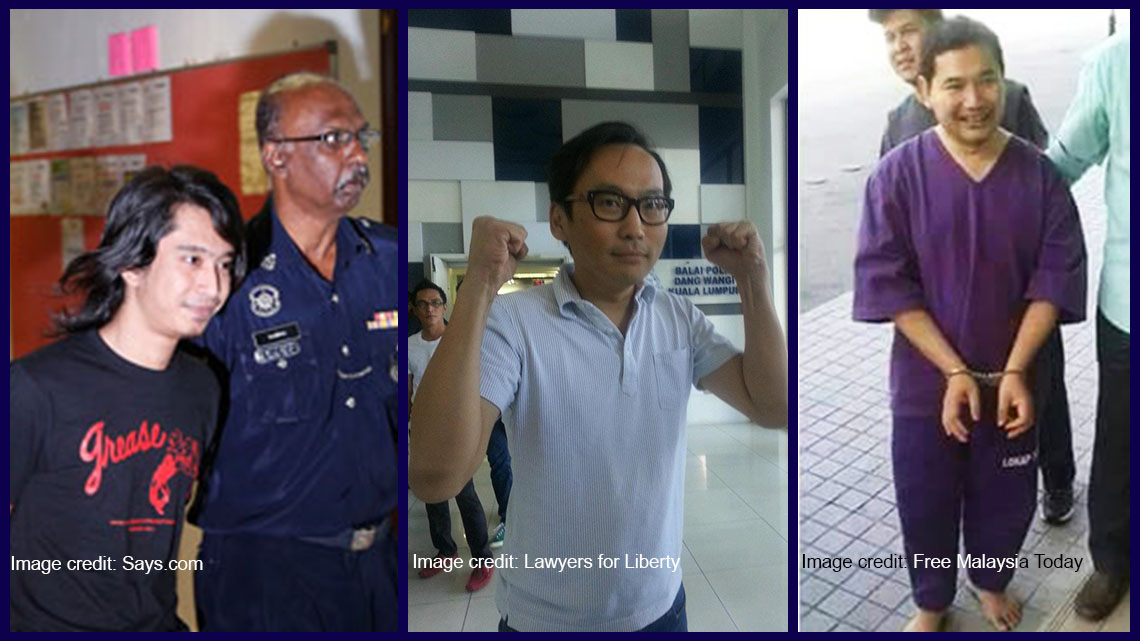
Well, they might be trying to put on a strong face for the photographers or because they’ve accepted it as part of their battle, but really, nobody WANTS to be arrested – especially for exercising their rights to freedom of speech and public assembly.
“As a human rights lawyer and activist I have to be prepared [to get arrested]. If they want to get you for posting a particular Tweet or attending a demonstration, what can you do? If you purposely run up to and punch a policeman it’s a different case la.” – Eric Paulsen
But is it easier for him because he’s a lawyer?
When we asked him how he felt during his January arrest, Eric said he wasn’t super confident at the time, but knowing the law and knowing that he wasn’t a helpless individual, well, helped. He also knew that he had support from the outside – from other lawyers and activists.
He also put things in perspective by telling himself that his situation wasn’t as bad as it would be in some countries – where getting killed was a very real possibility.
And this is why we said to call a lawyer. Having legal support and knowing that you aren’t alone goes a long way.
“In an unjust society, the place for a just person is in the dock*” – N. Surendran
* The place where the accused person sits
During our interview Surendran quipped that after spending 20 years in court, he felt more proud being in the dock than at the table arguing cases.
Of course, we’re more than aware that everyone has a different definition of “freedom of speech and assembly” and many may not even agree with what these activists are doing. However, we think that it’s important for people to know how the process goes in the event that they might find something worth speaking up for one day.
The following might be a little clichéd, but we can’t think of any better way to express this sentiment than in the poetic version of Pastor Martin Niemöller’s speech, written during the Nazi Holocaust:
First they came for the Socialists, and I did not speak out—
Because I was not a Socialist.
Then they came for the Trade Unionists, and I did not speak out—
Because I was not a Trade Unionist.
Then they came for the Jews, and I did not speak out—
Because I was not a Jew.
Then they came for me—and there was no one left to speak for me.
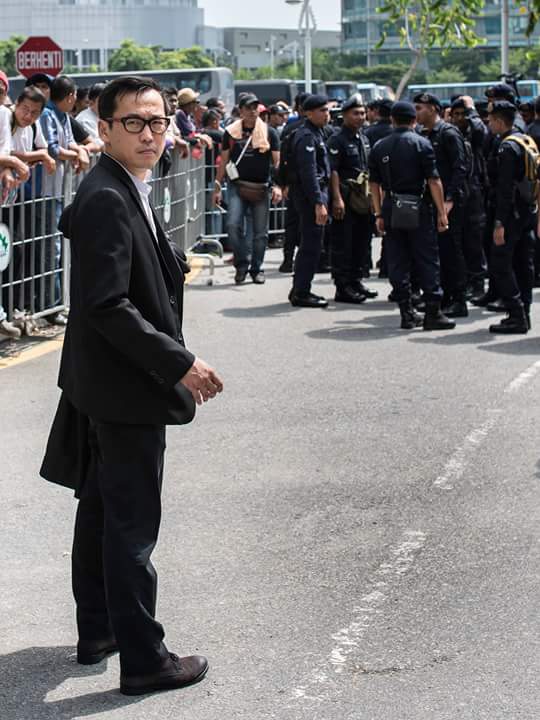
- 719Shares
- Facebook712
- LinkedIn1
- WhatsApp2

